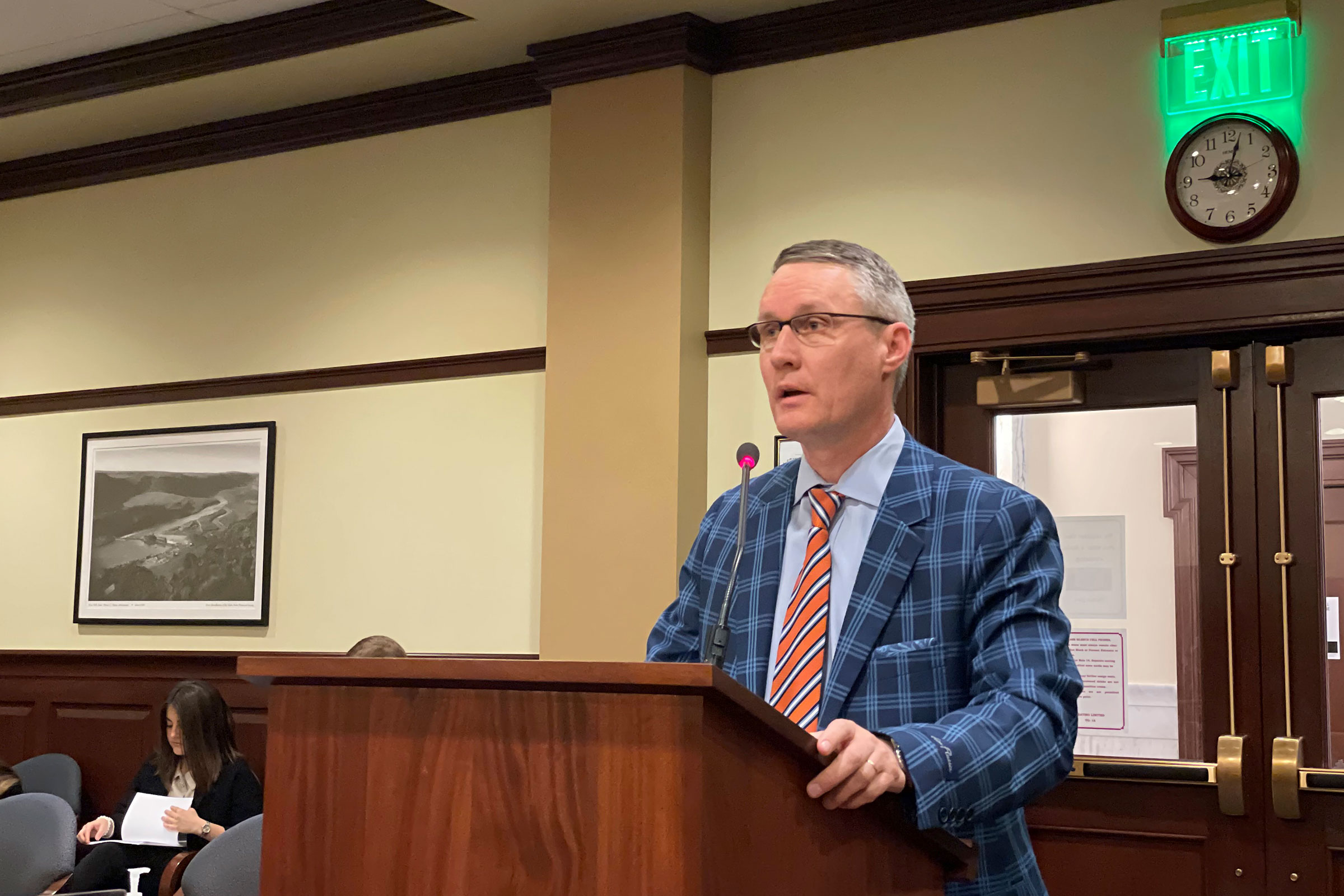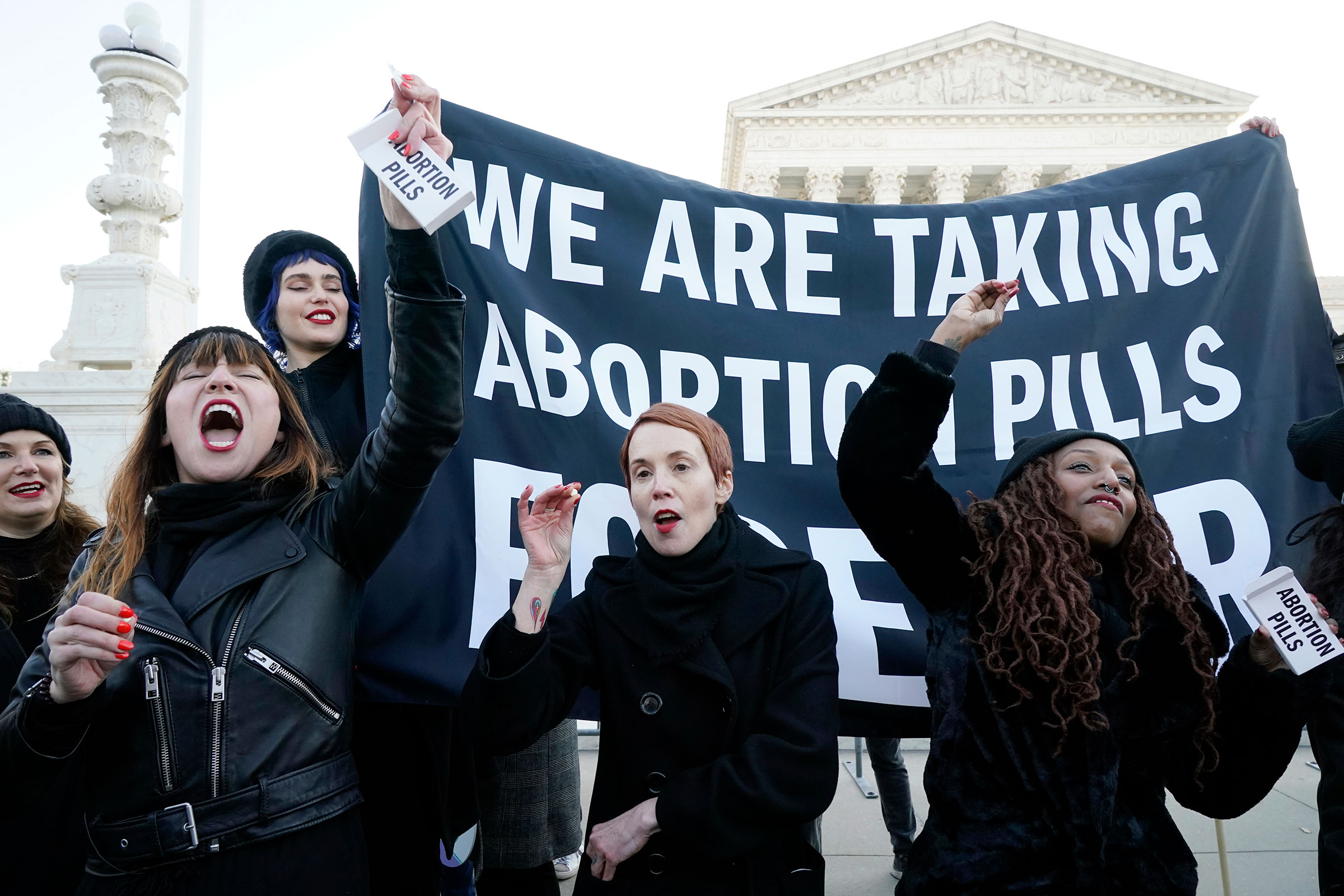In the wake of a leaked Supreme Court draft opinion overturning Roe v Wade, a handful of state and local Republican politicians appeared to support proposals restricting access to birth control.
In Arkansas and Louisiana, some Republican lawmakers announced their support for bills that would effectively result in immediate bans on certain emergency contraception, including copper intrauterine devices (IUDs) or Plan B, the so-called morning after pill, if the Supreme Court indeed overturns Roe. In Idaho and Michigan, conservative lawmakers and candidates expressed interest in proposals that would directly restrict access to emergency contraceptives.
The reasoning behind such proposals is old: antiabortion groups have long argued that such contraception is tantamount to abortion, since it prevents a pregnancy after unprotected sex has occurred. What’s new is that these proposals might, suddenly, have legal traction.
“It’s absolutely clear that the Supreme Court’s decision—if it does emerge along the lines of the leaked opinion by Justice Alito—would…open the door to restrictions on birth control, same sex marriage, sexual intimacy, and other forms of intimate personal decision-making,” says Laurence Tribe, professor of constitutional law at Harvard University tells TIME.
The draft opinion, authored by Justice Samuel Alito, says that any right not mentioned in the Constitution but implicitly protected by the Due Process Clause of the 14th Amendment must be “deeply rooted in this Nation’s history and tradition.” According to Tribe and other legal experts, such language leaves wide open the possibility that the Supreme Court would allow state laws restricting access to birth control to stand. Access to copper IUDs and the morning-after pill arguably are not deeply rooted in American history.
Alito’s language doesn’t only leave the door open, Tribe says; it “basically shove states that have that inclination right through the door.”
The constitutional right to birth control may be in jeopardy
The Supreme Court is expected to issue a final ruling in June. If the justices do indeed overturn Roe in its entirety, the legal landscape surrounding abortion and other reproductive rights will explode overnight, says Rachel Rebouché, interim dean of the Temple University Beasley School of Law and expert on public health law. “The arguments that will erupt, and the litigation, and the debate around definitions like what is and what is not an abortion…the landscape we’re going to confront when Roe is overturned,” she says, “is going to be incredibly complex.”
In Louisiana, state legislators have moved forward on a bill that would classify all abortion as a homicide, and would put in writing that “personhood” begins at fertilization. That definition that would likely raise legal challenges over whether emergency contraception violates the law. On Thursday, Louisiana Gov. John Bel Edwards, a pro-life Democrat, said he opposes the bill, and called it “unconstitutional” in a public statement.
A so-called trigger law in Arkansas, which would ban most abortions in the state if Roe is overturned, could have a similar effect on access to emergency contraceptives, the state’s Democratic Party warns.

The legal arguments are complicated by the science of emergency contraception. Copper IUDs and the morning-after pill do not terminate a pregnancy after conception has occurred; instead, morning-after pills temporarily prevent ovulation, thereby stopping an egg from being fertilized, and copper IUDs make sperm less likely to fertilize an egg, according to the National Institutes of Health and the American College of Obstetricians and Gynecologists, among other leading medical institutions.
Read More: Long-Lasting Birth Control Is Already Hard to Get. Advocates Worry It May Only Get Worse
Some lawmakers who have expressed support for restrictions on contraception have faced backlash. In Idaho, State Senator Brent Crane, who is also the chairman of the House State Affairs Committee, told Idaho Reports that he’d be open to hearings on the banning of abortion pills delivered by mail, IUDs, and Plan B. “Plan B—I probably would hear that legislation,” he said on May 6. “IUDs, I’m not for certain yet on where I would be on that particular issue.” The following week, Crane clarified that he supports contraceptives like IUDs, but would hold hearings on pills that induce abortion.

On May 8, Mississippi’s Governor Tate Reeves, a Republican, dodged questions from CNN’s Jake Tapper and MSNBC’s Chuck Todd over whether he’d consider bill banning contraceptives, and told Tapper that the state isn’t currently focused on it.
Some Republicans have also publicly criticized Griswold v. Connecticut, a landmark 1965 Supreme Court decision that established that the right to privacy afforded married couples access to contraceptives.
In Arizona, Blake Masters, a Republican running for Arizona Senate, reportedly pledged on his website to only vote for judges “who understand that Roe and Griswold and Casey were wrongly decided, and that there is no constitutional right to abortion,” according to the Arizona Mirror.
The statement no longer exists on Master’s campaign website, and he has since threatened to sue the Mirror because the story “wildly misrepresents my views,” he wrote on Twitter. “I am pro-life. And of course I don’t think contraceptives should be outlawed,” he said, adding, “In Griswold, the justices wholesale *made up a constitutional right* to achieve a political outcome. I am opposed to judges making law. It’s the job of the legislative branch to create laws, not the courts.”
This questioning of the Griswold case has come up before in recent weeks. Before the confirmation hearings for Judge Ketanji Brown Jackson, Sen. Marsha Blackburn of Tennessee released a video statement in which she called the Supreme Court’s decision in Griswold “constitutionally unsound.”
The question of when life begins
The idea at the center of debates about emergency contraception is so-called “fetal personhood,” a phrase embraced by the anti-abortion movement that defines a fetus as a person with constitutional rights. The idea of fetal personhood has come up repeatedly in high profile lawsuits, including Burwell v. Hobby Lobby, in which the Supreme Court ruled in 2014 that Hobby Lobby and other employers did not have to provide insurance coverage for birth control on religious grounds.

Arguments also circle the controversial question of whether the Constitution implicitly affords Americans a right to privacy that first emerged in the 1920s. In 1973, when the Supreme Court ruled 7-2 in favor of Roe, it determined that women have a right to seek abortions under an interpretation of the 14th amendment establishing a constitutional right to privacy. Conservatives, including Justices Alito, Antonin Scalia, and Clarence Thomas, have long objected to that interpretation, says H.W. Perry, professor of constitutional law and political science at the University of Texas at Austin. “The debate has become, should the court defend rights of privacy that are not specifically mentioned in the constitution?” Perry says.
Read more: Why It’s So Hard to the Get Birth Control You Want Covered by Insurance
Other Supreme Court decisions, including Griswold, Loving v Virginia, which struck down a ban on interracial marriage in 1967, and Obergefell v Hodges, which legalized same sex marriage in 2015, were decided on those same grounds, says Melissa Murray, professor of law at New York University.
The leaked draft opinion, written by Justice Samuel Alito, says explicitly that the court’s ruling on Roe is strictly about abortion and should not be interpreted to impact precedent set in other cases. But many legal scholars say such an assertion is about as valuable as the paper it’s written on.
“I think [Justice Alito] knows good and well that that’s disingenuous,” says Murray, whose work has focused on constitutional law and reproductive rights. “But as you can see, [conservatives are] lining up against these other rights.”
Tribe notes that Alito’s reassurance flies in the face of how the judicial system functions. “Courts don’t decide a case and say it’s like a one-way railway ticket good for this trip only,” Tribe says. “They lay down a principle and that principle is then applied in future controversies.”
More Must-Reads from TIME
- Donald Trump Is TIME's 2024 Person of the Year
- Why We Chose Trump as Person of the Year
- Is Intermittent Fasting Good or Bad for You?
- The 100 Must-Read Books of 2024
- The 20 Best Christmas TV Episodes
- Column: If Optimism Feels Ridiculous Now, Try Hope
- The Future of Climate Action Is Trade Policy
- Merle Bombardieri Is Helping People Make the Baby Decision
Write to Jasmine Aguilera at jasmine.aguilera@time.com